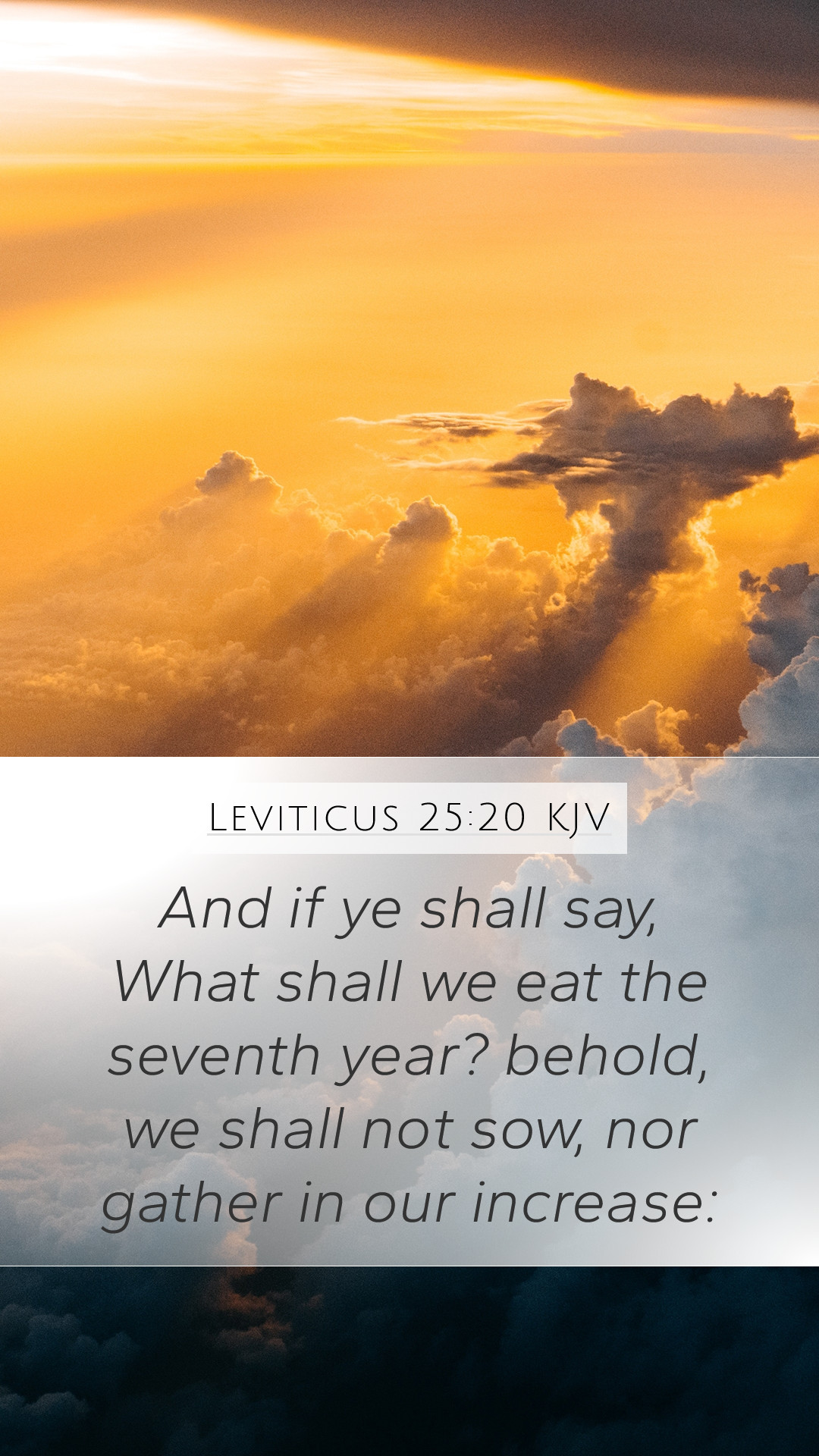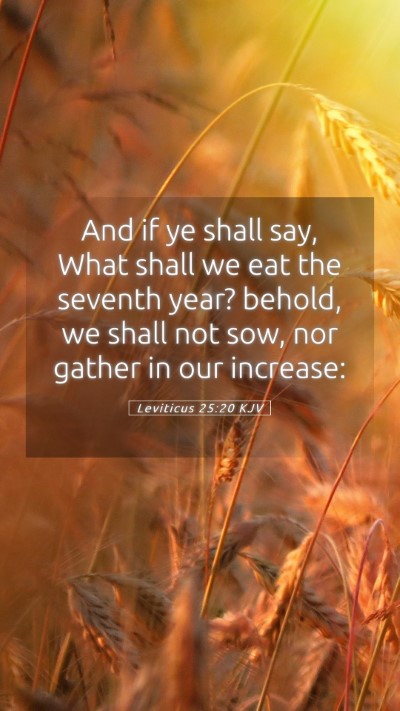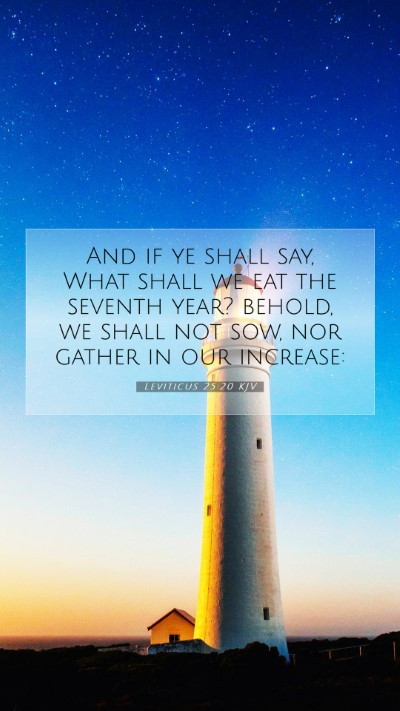Understanding Leviticus 25:20
Leviticus 25:20 reads: "And if ye shall say, What shall we eat the seventh year? behold, we shall not sow, nor gather in our increase." This verse is part of God's instruction to the Israelites concerning the Sabbatical year, where the land was to rest and not be cultivated.
Summary of Meaning
The essence of this verse revolves around the concern of the Israelites regarding their sustenance during the year of rest. It reflects their anxieties about the practical implications of following God’s commandments, particularly regarding agricultural practices.
Commentary Insights
Matthew Henry
Matthew Henry emphasizes that this question arises from a place of doubt and lack of faith in God’s provision. He suggests that it is essential to trust in God’s promises even when they seem implausible, especially in matters concerning sustenance. By observing the Sabbath and allowing the land to rest, the Israelites were practicing a principle that upheld both their spiritual and physical well-being.
Albert Barnes
Albert Barnes elaborates on the significance of the Sabbatical year, suggesting that it was not just a command for rest but a time to rely on divine providence. He notes that God assures His people that He would provide for them during the fallow years, reflecting the broader theological theme of reliance on divine care rather than human efforts.
Adam Clarke
Adam Clarke points out that the question posed in this verse indicates a lack of understanding of God’s ability to provide. He encourages readers to recognize that God's commands are paired with His provisions, and thus those who obey will find their needs met. The verse serves as a timeless reminder that faith often requires stepping out in trust when faced with uncertainty.
Application and Significance
This verse raises profound questions about faith and provision. It challenges readers to consider their own doubts when faced with following divine instruction. The context of the Sabbatical year highlights principles applicable today, such as the need for rest, trust in God, and the importance of relying on Him for sustenance and provision.
Bible Study Insights
- Practicing Faith: This verse teaches the importance of trusting in God’s provision even in difficult circumstances, applicable in Bible study lessons.
- Divine Provisions: A reflection on how God ensures provision for His followers, which is a significant topic in Bible study groups.
- Rest and Renewal: The principle of rest for both body and land is applicable for modern spiritual and physical health.
Cross References
- Exodus 23:10-11 - Further instructions on the land's rest and God’s provision.
- Deuteronomy 15:1-2 - The command regarding the release of debts in the sabbatical year aligns with trusting God’s provision.
- Matthew 6:31-33 - Jesus reinforces the idea of trusting God for daily needs.
Further Considerations
In researching the meanings of this and similar Bible verses, students of Scripture are encouraged to ponder questions such as:
- How can one apply the concept of rest in a modern context?
- What are the implications of God's provision in times of scarcity?
- In what ways can we cultivate faith in our own lives as demonstrated in the context of this verse?
Conclusion
Leviticus 25:20 stands as a powerful reminder for believers about the need to balance obedience with trust in God's provisions. This verse invites exploration of deeper Biblical exegesis and analysis, enhancing our understanding of Scripture and fostering greater faith in God’s unwavering sustenance.


